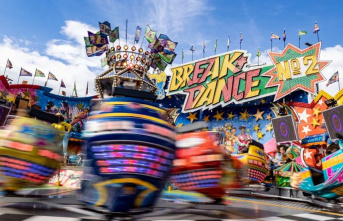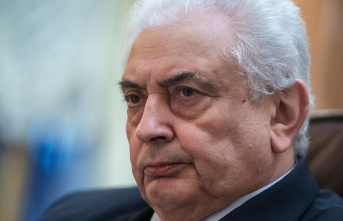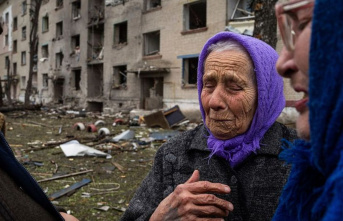In that instance, güvenilir bahis siteleri the internet should solve everything, says David Pogue, a correspondent. It's not , butmore speech. Yet, news stories are full of people trying to restrict other people's expression.
-
Florida legislators are pushing two bills that would prohibit school districts from encouraging discussions about gender identity in classrooms.
-
Nearly 12 states have introduced bills that would determine what students can and cannot learn about slavery in American history and ongoing racism in the U.S. today .
-
A Tennessee school board has removed "Maus," the Pulitzer Prize-winning graphic book about the Holocaust that was written by , from its curriculum.
-
Spotify was in hot water after Joe Rogan's podcast contained racial slurs, and misinformation from COVID-19.
-
A student group attacked a Georgetown Law administrator for posting a racist, sexist and misogynistic tweet that criticised President Joe Biden's announcement to nominate a Black woman to the Supreme Court.
Jacob Mchangama (author of "Free Speech"), a book about the history and future of free expression said that "I would argue" that America's culture of free speech has been under attack. "And without a strong culture of free speech based upon tolerance, the laws as well as constitutional protection will eventually erode.
"People on both the left and right seem to be coming at freedom speech from different angles, with different grievances. This points to a general loss in faith in the First Amendment."
Even schools are suffering from the free-speech erosion. According to PEN America Republican legislators have introduced more than 150 state laws that restrict teachers' ability to discuss race, gender identity, and sexual orientation in the classroom.
Jennifer Given, a Hollis high school history teacher in New Hampshire, stated that the laws were about creating false narratives to advance a political goal.
She told Pogue that it was a scary time to be teacher. "We are self-censoring. We are avoiding certain ideas and things in an effort not to cross the lines.
A new New Hampshire law restricts what teachers can say regarding racism and sexism. A conservative group offers $500 to any teacher who violates the law.
As such, the ghost of Senator McCarthy can be found in some hallways of the state house.
Pogue asked: "What would you do if you violated this law?"
She replied, "That could result in your license being revoked." "And so, not only would I be unable to work at my school but also anywhere else."
"But I don't get it, New Hampshire's motto is 'Live Free Or Die!'
Given laughed. "They've been putting a lot of emphasis on 'or die!' lately!"
John Powell, a professor at UC Berkeley and an expert in civil liberties, stated that the classroom bans were a serious issue for freedom of speech. This is so far from the rail to me."
He is particularly alarmed by the record number books being banned from schools across the country. Conservatives object books on sex, gender, and racial justice (such as Toni Morrison’s “Beloved," Alex Gino’s “George,” and "The 1619 Project"), while liberals object books containing outdated racial depictions.
"You can't make Holocaust a nice thing, it wasn't nice!" Powell laughed. "You can't make slavery nice. "That makes people feel uncomfortable." It must make people feel uncomfortable! Education is not about comfort. If someone truly wants to question the Holocaust, then let them challenge it. But don't ban discussion.
John Stuart Mill, an English philosopher, suggested that governments should limit speech when it causes harm to others in the middle of 1800s.
Powell stated, "He wrote a book called "On Liberty," [about] freedom. Powell was concerned about government suppression of people and that citizens should have the right to speak their minds.
This guideline has been generally followed by our laws. Public speech in the United States is prohibited from obscenity and defamation as well as death threats and incitement to violence.
Powell said however that recent restrictions are more about culture wars and preventing harm. That's problematic."
"There's a big difference between saying something that makes people uncomfortable and something that causes harm to society or incites people to riot." asked Pogue.
"Right, discomfort is not the exact same as injury."
These days, however, there are whole new types of speech that could cause harm. Powell said that disinformation is a deliberate act of lying to cause injury or harm to others. It really means that our understandings of the First Amendment as well as our understandings of free speech are evolving. It must evolve."
It is not surprising that social media networks such as Facebook and Twitter have spawned a new culture of censorship.
Jillian York, director of international freedom of expression at Electronic Frontier Foundation and author of "Silicon Values", stated that "The First Amendment was created to protect citizens from restrictions of expression by government and not private companies or other entities."
Pogue asked: "So, for example, Donald Trump being kicked off Twitter, and Facebook?" That is censorship? Is this badcensorship? Is this goodcensorship?
York stated that Trump being removed from Facebook and Twitter is "kind of complicated." "But what really worries me is that Mark Zuckerberg, who none of us elected has the power to remove an incumbent official. This should concern us all, even though we feel that Trump must be silenced.
York stated that big tech companies censor speech every day, sometimes accidentally, but always without oversight or transparency. She said that protest material around Black Lives Matter was removed from Facebook's platform "wrongfully". "LGBTQ content was removed. also things like art, satire, and poetry.
Jacob Mchangama says social media censors us in another way by making us afraid of speaking at all. "There was actually a survey by the Cato Institute that showed 62% of Americans self-censor and are afraid to express their political views on certain topics.
It shows the paradox of America's strong legal protection for free speech. They still fear being fired if they express their political opinions. This is not a good sign.
It's not only America. At least 37 countries have passed laws increasing censorship (of individuals and the media) since 2019, including Europe, where Jillian York resides. York stated that there is a lot of discussion in Germany right now over a recent law that restricts hate speech online, but also creates penalties for things such as the insult law. You know that insulting someone online can lead to financial penalties.
These attacks on free speech could make it easy to become depressed. Particularly if you are a teacher like Jennifer Given.
Pogue asked: "What's your end point if it keeps going like this in New Hampshire?"
She laughed, "I don't really know." "There's a point when you think, "Maybe I've had that."
Jacob Mchangama, however, points out that you still have more freedom to express your opinions than many countries. "If we were having these discussions in Russia or Turkey, you'd know someone would pick you up when you go down on the street. And you might not hear anything from me for a while."
He stated that we must fight for civil debate and not take it as a given.
He said, "I'm not saying free speech is great and doesn't have any consequences. It does." "You should ask yourself, how can we reduce misinformation?" How can we make sure that hate speech is not censored?
It's an experiment. It's been a very positive experiment, I would argue. It's a worthwhile experiment that is worth continuing.











